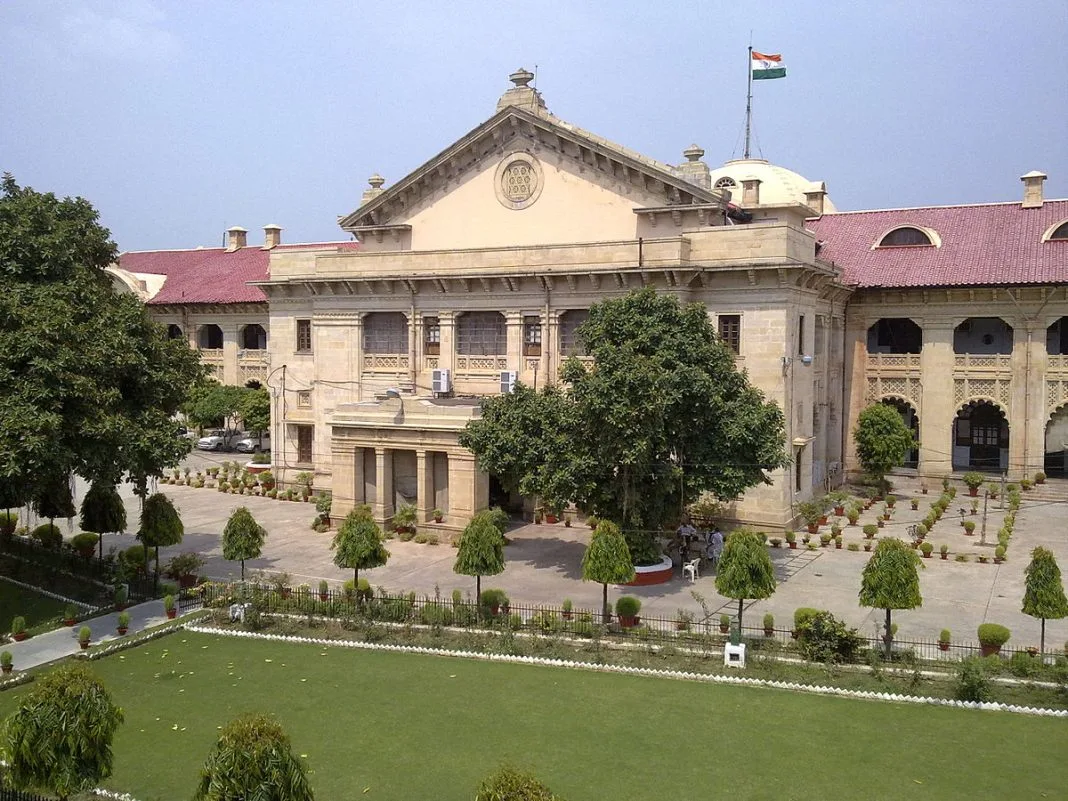In the Lucknow Bench of the Allahabad High Court a public interest litigation has been filed challenging the validity of Rule 5 of U.P Higher Judicial Service Rules, 1975 as amended in the year 2023.
The Division Bench of Justice Attau Rahman Masoodi and Justice Brij Raj Singh heard this PIL filed by Trideep Narayan Pandey.
The petition filed in public interest has questioned the validity of Rule 5 of U.P Higher Judicial Service Rules, 1975 as amended in the year 2023 with the issuance of the notification dated 11.1.2024.
Ashok Pandey, counsel for the petitioner has firstly argued that the amendment made in Rule 5 of the impugned provision in exercise of the powers under Article 309 of the Constitution of India exceeds the prescription of eligibility by virtue of sub-Article (2) of Article 233 of the Constitution of India.
It is secondly argued that the recommendation of the High Court serving as driving force to promulgate the amendment under Article 309 of the Constitution of India is an undue mechanism to influence rule making power within the scope of Article 309 of the Constitution of India, hence the amendment is bad.
It is thirdly argued that at the relevant point of time, the recommendation of the High Court permissible, if any, which was understood to have been made by the Chief Justice was invalid as the office was occupied by the Acting Chief Justice, who could not do the same.
It is lastly argued that assuming that the validity of the amendment stands the competence of the rule making authority, yet the amendment so made laying down the criteria of conducting thirty cases independently by an eligible candidate, is arbitrary and violates Article 14 of the Constitution of India. These are broadly the four aspects highlighted by the counsel for the petitioner.
Gaurav Mehrotra, counsel for the High Court and the counsel for the State and Union of India, on the contrary, have raised a preliminary objection at the very outset. It is submitted that the petitioner being himself an aspirant to complete the examination has a personal interest in the Writ proceedings. Thus, under the garb of public interest, the petitioner has attempted nothing, but to espouse his own cause, which may not be permissible in a proceeding titled as Public Interest Litigation.
It is further pointed out that sub-Article (2) of Article 233 of the Constitution of India is not to be read in isolation, but is to be construed in conjunction with sub-Article (1) of Article 233 of the Constitution of India so as to ascertain the true import of law. A holistic view of the constitutional provisions once understood in the right perspective makes the role of the High Court relevant to justify the consultation and recommendations. Thus, the grounds questioning the validity of the rule making authority on the premise set out in the writ petition lack the legal sanctity. The arguments put forth by the counsel for the petitioner are thus disputed to be misconceived.
Having regard to the submissions put forth, prima facie, the Court found that the matter requires consideration.
The Court granted four weeks time to file counter affidavit for the opposite parties and two weeks time to file rejoinder affidavit. List thereafter.


